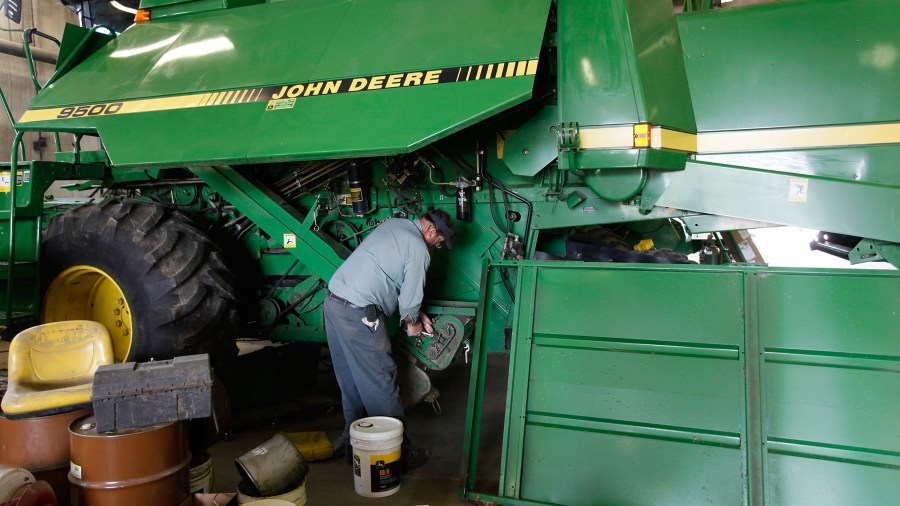The right to repair broken tech is key to farmers

This episode originally aired July 19, 2021.
The Federal Trade Commission is turning its attention to the right-to-repair movement — a pushback against manufacturers limiting who can repair the equipment they make. In a report from May the agency found “the burden of repair restrictions may fall more heavily on communities of color and lower-income communities.”
This summer the agency said it would do more to prevent these restrictions when they violate antitrust law. One group watching this debate is farmers. Some companies that make farm equipment only allow repairs at their own dealerships.
Terry Griffin is an agricultural economist with Kansas State University. He grew up on a farm in northeast Arkansas, and back then, DIY equipment repairs were just a part of life. The following is an edited transcription of Griffin’s conversation with host Kimberly Adams.
Terry Griffin: I think I’m fairly good with a wrench. But that was because financial circumstances were tough in the 1980s. Farmers were sort of forced into that as a survival mechanism.
Kimberly Adams: Think you’d be able to fix a piece of farm equipment today?
Griffin: No. It’s a world of difference between the 1980s and today. Think about the cars you drive, especially the upper end of vehicles that may have OnStar. Farm equipment is no different. We’ve been pushing data from farm equipment to the cloud for the manufacturers’ use since about 2010.
Adams: And these pieces of equipment we’re talking about are worth hundreds of thousands of dollars in some cases.
Griffin: Or even more. It wouldn’t be out of the question for the newest John Deere combine to come fully equipped at over $1 million.
Adams: Can you give some specific examples about what an operator or a farmer might want to fix right now, that they typically can’t?
Griffin: One of the issues that a lot of farmers would be happy with would be to run the diagnostic codes — the error messages to diagnose what the issue is. The dealership of the manufacturer are the only ones that can run those diagnostics.
Adams: How does the inability of farmers and operators to repair this equipment affect the business of running a farm?

Griffin: If there is an issue with the tractor … and we’re not able to use it, we may have to load it up onto a truck and drive it an hour, two hours to a qualified repair shop. And that will take time out of the day, and we essentially may lose a half a day or a whole day. Then, agriculture is a biological process, so there is an optimal week of the year with which to plant corn, and if we have to wait till the end of the season to make up that day’s worth of planting, we’re at a relative disadvantage, such that the yields are lower.
Adams: What do the manufacturers say in response to these complaints?
Griffin: Well, if I was manufacturing equipment, I would fully understand why I would want my qualified, trained technicians to do the repairs — especially if the equipment is leased. That way, I can ensure that I know how those repairs are made when it goes to the secondary market for selling used equipment.
The future of this podcast starts with you.
Every day, the “Marketplace Tech” team demystifies the digital economy with stories that explore more than just Big Tech. We’re committed to covering topics that matter to you and the world around us, diving deep into how technology intersects with climate change, inequity, and disinformation.
As part of a nonprofit newsroom, we’re counting on listeners like you to keep this public service paywall-free and available to all.
Support “Marketplace Tech” in any amount today and become a partner in our mission.












